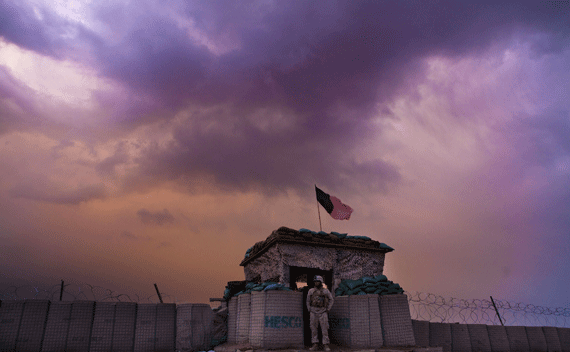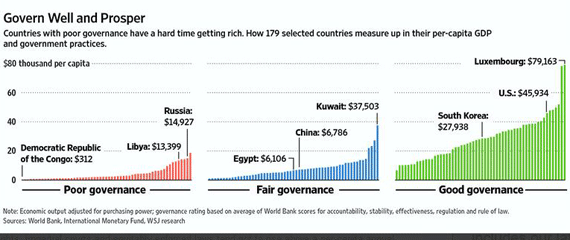Friday File: The Afghanistan Debate Heats Up
More on:

Above the Fold. Next month President Obama will likely announce his plans for U.S. troop deployments in Afghanistan. Expectations are that he will follow through on his December 2009 promise and announce a troop drawdown. The great unknowns are how many troops will come home, how fast they will come home, and how the mission of those who stay behind will change. Congressional Democrats, including some who previously supported Obama’s surge, are calling for a major reduction. Last week, an amendment by Rep. Jim McGovern (D-Mass.) calling for a significant drawdown received 204 votes in a losing effort; a similar bill that McGovern sponsored last year won only 162 votes. The American public lost enthusiasm for the Afghanistan war months ago, and the drumbeat of stories that will appear in the coming weeks about how the United States will spend $113 billion in Afghanistan during the current fiscal year will only harden that sentiment. Does this mean that Obama must make deep cuts or risk a political roasting? No, not at all. The president actually is in a good position politically. His drawdown plan will not satisfy all Democrats, but he will be almost certainly moving in their direction and taking the edge off their criticism. Meanwhile, Republicans are in a bind. They could applaud Obama’s plan, which would make the White House happy. Or they could criticize a president who is following public opinion, thereby giving voters another reason besides Medicare to believe that Republicans aren’t listening to them.
CFR Event of the Week. The global war on terror and growing concern about homegrown terrorism have fanned the flames of anti-Muslim feeling in the United States. A recent projection published by the Pew Research Center estimates that the Muslim population in America will double between now and 2030, growing from 2.6 million to 6.2 million in fewer than twenty years. This week CFR hosted a panel to discuss myths and fears that some Americans have about Muslims in the United States. You can download the audio or watch the video.
Read of the Week. The New York Times’s Edward Wong wrote a fascinating story yesterday on China’s shortage of drinkable water. The lead sentence grabs your attention: “North China is dying.” The Chinese government’s answer to the problem is mammoth construction projects that would re-direct water from the south of the country to the north. The attempt to subdue Mother Nature may backfire, however, by destroying China’s southern rivers and stirring social unrest.
Blog Post of the Week. Steve Walt offers up a nice riff on the Wong story that comes with two great suggestions for further reading: Chapter 12 of Jared Diamond’s superb book, Collapse: How Societies Choose to Fail or Succeed, which explores how environmental degradation can lead to societal collapses, and James Scott’s Seeing Like a State: How Certain Schemes to Improve the Human Condition Have Failed, which provides a humbling review of how well-intentioned projects many times produce disastrous outcomes. I would add a third suggestion: Elizabeth Economy’s award-winning book, The River Runs Black: The Environmental Challenge to China’s Future, which is now in its second edition. All those gleaming high rises in Shanghai have come at a steep environmental cost to the Chinese people.
Poll Question of the Week. CNN recently asked Americans, “In your view, who should have the final authority in deciding whether the United States should continue its use of military force in Libya: Congress or President Obama?” Fifty-five percent said Congress, and 42 percent said Obama. It’s no surprise that survey respondents who identify themselves as Democrats overwhelmingly say (65 percent to 32 percent) that they want Obama to make the call, or that Republicans overwhelming say (73 percent to 26 percent) that they want Congress to make the call. How likely do you think it is that those preferences would flip if we had a Republican president? Yep, about a 100 percent certainty. By the way, respondents who describe themselves as Independents align more closely with Republicans than Democrats on this one. Sixty-one percent of Independents want Congress to make the call, and 35 percent say Obama.
Chart of the Week. Guess what? Good governance looks to go hand in hand with economic prosperity. The Wall Street Journal recently noted a study by a pair of economists at INSEAD, a highly regarded business school in Fontainebleau, France. They sorted countries into three categories: those with poor governance (as measured by World Bank scores for accountability, stability, effectiveness, regulation and rule of law), fair governance, and good governance. The upshot is that you want to live in a country with good governance. The challenge that policymakers and academics have yet to master: How do you move countries from the poor governance category to the good governance category?
Source: Wall Street Journal.
Too Good Not to Note. Micah Zenko looks at Osama bin Laden’s death one month after the Abbottabad raid. Sheila Smith reports on how Japanese Prime Minister Naoto Kan barely avoided joining the long list of Japanese prime ministers who served only briefly. Joshua Keating discusses Mitt Romney’s effort to win votes by calling President Obama a “European leader.” Bill Keller has a theory about conspiracy theories.
Perils of Prediction. “McGovern has about as much chance as Pat Paulsen of getting the Democratic presidential nomination in Miami.” Arizona Republic editorial, March 8, 1972. Senator George McGovern’s chances turned out to be a whole lot better than comedian Pat Paulsen’s. McGovern won the Democratic nomination, giving hope to future presidential long shots in both parties.
Quote to Ponder. “A public-opinion poll is no substitute for thought.” Warren Buffett.
A Reason to Smile. National Doughnut Day.
More on:
 Online Store
Online Store

